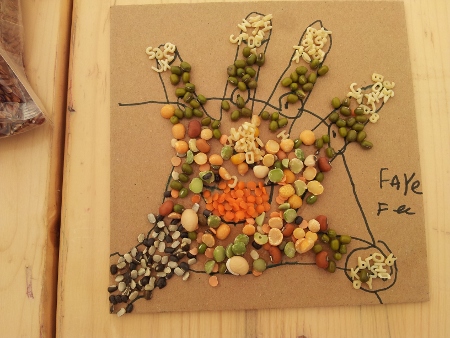In the final Commission draft of the EU seed law is a provision for niche varieties:
Article 36
Derogations from registration requirements in the case of niche market plant reproductive material
1. Article 14(1) shall not apply to plant reproductive material where all of the following conditions are fulfilled:
(a) it is made available on the market in small quantities by persons other than professional operators, or by professional operators employing no more than ten persons and whose annual turnover or balance sheet total does not exceed EUR 2 million;
(b) it is labelled with the indication ‘niche market material’.
That plant reproductive material is hereinafter referred to as ‘niche market material’.
2. The persons who produce niche market material shall keep records of the quantities of the material produced and made available on the market, per genera, species or type of material. On request, they shall make those records available to the competent authorities.
3. The Commission shall be empowered to adopt delegated acts, in accordance with Article 140, setting out, with regard to the production and making available on the market of niche material belonging to particular genera or species, one or more of the following:
(a) the maximum size of packages, containers or bundles;
(b) requirements concerning traceability, lots and labelling of the niche market material concerned.
(c) modalities of making available on the market.
This provision has sparked quite some discussion in the past few days, all over Europe. The emergence of this provision came as a surprise, and now people are starting to think about how it will affect everyone.
10 persons and annual turnover or balance sheet total does not exceed EUR 2 million
This is the sticking point. On one hand this seems to provide a nice exception for small farmers and seed companies, but on the other seems to cause some problems.
In the Netherlands, 2 small independent seed companies fall over this limit, as do other small independent seed companies in other countries like Franchi in Italy.
In the UK, small seed company Real Seeds has expressed concern, because their business depends on supplier relationships with larger seed companies. The Soil Association has publicly expressed concern because large investment is often need to develop new seed varieties, and smaller companies may not have the capacity to adequately do this.
Protecting Small Businesses
The original thought when this exemption was proposed was to reduce the red tape for smaller companies, but another purpose has emerged. If larger companies could not produce or sell niche market material, it also protects smaller businesses from competition from larger ones.
There is a big problem worldwide that we depend on a very small number of seed companies for virtually all of our seed, and this could provide a nice launching point for small businesses into the market.
Flawed Principles of Registration
There is widespread belief that the system of seed registration is seriously flawed to begin with, and a small exception like niche varieties is not enough. Instead there should be no mandatory registration for anyone, regardless of size.
Delegated Acts
However nice this provision may be in the regulation, the delegated acts in section 3 could completely undermine the entire article at any moment.
Getting Around the Limit
In my opinion, this is not a very hard limit. For example if a company is a little too large, they could form a holding company and 2 or more subsidiaries. This would be feasible for a small company, but less feasible for the very largest of seed companies.
I think seed could also probably be produced by foreign companies, then imported.
What Shall We Do?
Shall we keep this provision? Shall we scrap mandatory registration, then make this derogation unnecessary? Should we change the limit? Shall we keep this provision, but get rid of the delegated acts?
I personally think there’s a lot to be said for getting rid of mandatory registration for all non-GMO open pollinated varieties. The entire system of registration is seriously flawed. It’s not just seeds that are registered, but the entire supply chain, and in the end member states can impose even more restrictions if they want.
I also think there’s an argument for keeping this provision in order to protect smaller companies, but perhaps with some changes to fix obvious problems.






